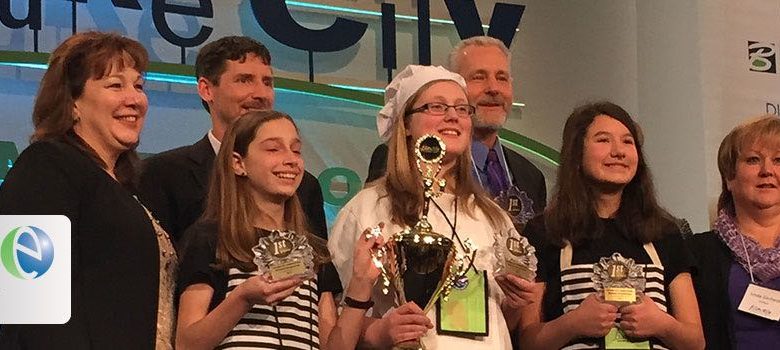
IEEE-USA will have a special guest at its exhibit during Discover Engineering Family Day in Washington, D.C., on Saturday 28 February.
David Cox, director of alliance development at Cree, Inc. will be on hand at the 23rd-annual event to talk about the energy-efficient technology behind his company’s LED Components and LED lighting solutions.
Cree, based in Durham, N.C., is one of the world’s leading engineering and manufacturing companies of lighting-class LEDs and semiconductor solutions for wireless and power applications.
Cree LEDs powered the Ephesus Lighting fixtures that illuminated the Super Bowl at University of Phoenix Stadium in Glendale, Ariz., on 1 February. It was the first NFL championship game played under LED lights.
In addition to having 40-, 60- and 100-watt LED replacement bulbs with him at Family Day, Cox will discuss the process by which Cree takes silicon carbide wafer materials and turns it into power devices, components and fixtures. He will also have items attendees can touch and feel to better understand the engineering process and how Cree engineers make the world a healthier, safer and more energy-efficient place to live.
LEDs (light-emitting diodes) use semiconductors to produce light when electricity passes through them. They consume less energy than a CFL (compact fluorescent light) and far less than a traditional light bulb. And by not producing heat, LEDs reduce air conditioning costs in the summer. With advancing technology, the cost for LEDs continues to fall.
IEEE-USA’s exhibit will also feature breadboard project kits to help children understand basic circuits.
Family Day, hosted by the National Building Museum, will conclude 2015 U.S. DiscoverE Engineers Week (22-28 February) activities in the nation’s capital. The American Society of Agricultural and Biological Engineers and Shell are partnering to lead EWeek this year.
Cox and IEEE-USA volunteer Dusty Fisher first met in April 2014 at the USA Science & Engineering Festival in Washington. Cox was attracted to the IEEE-USA booth by its open-stud light display featuring a traditional incandescent bulb, a CFL and an LED. The latter has since been replaced by a Cree LED.
“That’s the best demonstrator I’ve ever seen,” said Cox, who earned a degree in electrical engineering from North Carolina State University. “It provides a great opportunity to talk about how much more efficient LEDs lights are, and allows people to see how electrical components are connected behind the walls.”
The IEEE-USA display will be on hand at Family Day, which has drawn more than 9,000 children, teachers and parents to the Building Museum each of the past four years, including a one-day museum record 13,994 in 2011. The hands-on event features engineering societies and companies making presentations designed to interest students age 4-12 in engineering and enhance their technological literacy.
A former Space Shuttle Columbia astronaut and a Navy test pilot will also be there.
If you’re interested in volunteering at the IEEE-USA Family Day exhibit, contact Chris McManes at c.mcmanes@ieee.org. For those of you not in the Washington, D.C., area, here are some things you can do to celebrate EWeek:
- Participate in your local section activities
- Make an engineering-related presentation in a classroom, out-of-school club or local library
- Contribute to Introduce a Girl to Engineering Day, Thursday 26 February
For more ideas, check out this recorded Webinar, “Six Easy Ways to Make a Difference During Engineers Week.”
Additional EWeek Programs
EWeek activities are held across the country and, in addition to reaching out to future engineers, are designed to celebrate and honor engineers for the work they do to improve our health, happiness and safety.
For example, the DiscoverE San Diego Awards Banquet is Friday 27 February. The Tampa Bay (Fla.) Engineers Week Banquet is that same day and will feature Story Musgrave, a former Space Shuttle Challenger astronaut who, along with Donald Peterson, conducted the first spacewalk of the shuttle era.
In Illinois, 50 high-achieving middle- and high-school students will be invited to the Chicagoland Engineering Awards Benefit and, in addition to receiving awards and accolades, will have the opportunity to meet engineers such as Martin Cooper, inventor of the cell phone.
The Engineers’ Council held its National Engineers Week Honors & Awards Banquet in West Palm Beach, Fla., on 20 February and will hold one in Universal City, Calif., on Saturday 28 February.
Future City Champions Crowned
The Academy for Science and Foreign Language of Huntsville, Ala., won the IEEE-USA-sponsored third-place award during the Future City Competition National Finals in Washington, D.C., on 17 February. The school will receive a $2,000 check for its science and technology program.
IEEE members Steve Bonk of Riva, Md., Murty Polavarapu of Manassas, Va., and Zafar Taqvi of Houston, Texas, chose St. Thomas More Catholic School of Baton Rouge, La., as the 2015 winner of the IEEE-USA Best Communications System award. Polavarapu is IEEE-USA vice president for communications and public awareness.
IEEE-USA President Jim Jefferies presented both awards to the five-member teams, which includes three students, a teacher and an engineer.
St. John Lutheran School of Rochester, Mich., (pictured at the top of this article) won the grand prize, becoming the first school in the program’s 23-year history to win back-to-back championships. The team receives a trip to U.S. Space Camp in Huntsville and $7,500 courtesy of Bentley Systems.
Future City is an engineering design competition for middle-school students that began under IEEE-USA auspices in 1993. It has grown to about 40,000 student participants. This year, for the first time, a team from outside the United States participated in the National Finals, Shanghai (China) Shixi Junior High School.
Chris McManes is IEEE-USA’s public relations manager and vice-chair of the Discover Engineering Family Day planning committee.






